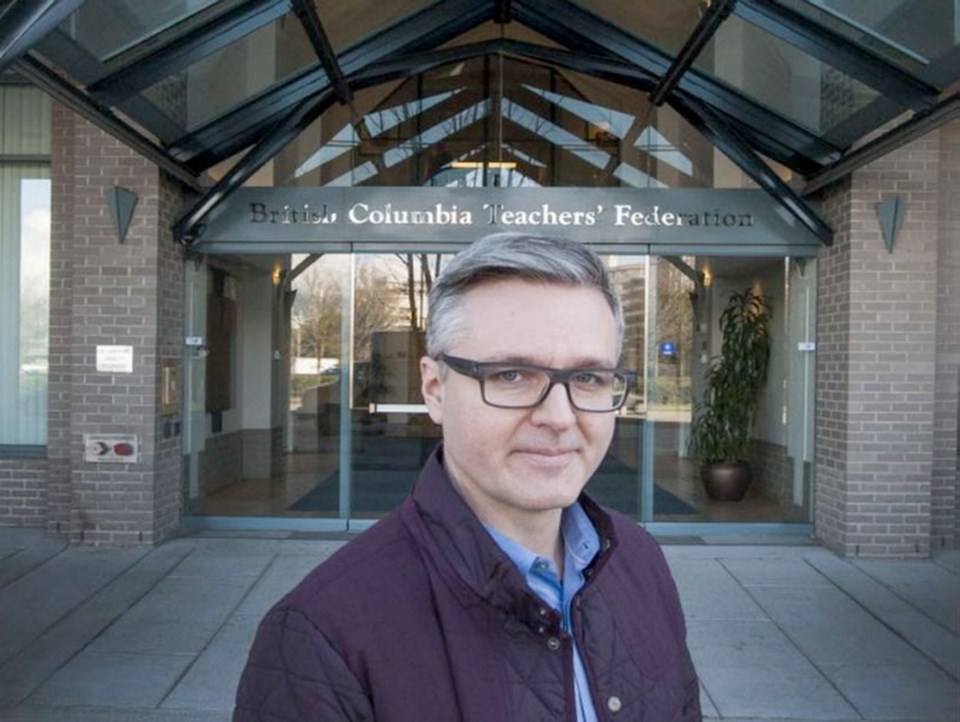VANCOUVER — B.C. teachers say they’re shocked and disheartened by the provincial government’s tough position in collective bargaining.
Educators said they didn’t expect the B.C. NDP, which supported their legal battle against the former B.C. Liberal government, to table the same changes to class composition and teacher ratios that led to the teachers’ 2016 landmark Supreme Court victory.
“It feels like déjà vu,” said Treena Goolieff, a vice-president at the Vancouver Secondary Teacher’s Association. “Which we never expected, given we have a different government that is actually quite supportive of what public education stands for. But that doesn’t feel like it’s true right now.”
Talks with the B.C. Public School Employers’ Association have stalled over proposals on class sizes and composition that would undo the union’s Supreme Court win, B.C. Teachers’ Federation president Glen Hansman said in an interview on Friday.
Hansman said the proposal, which would increase class sizes in dense areas, would disproportionately affect teacher workloads in urban areas.
“It would be a one size-fits-all to the entire province that’s worse than what currently exists,” he said. “This is going to take us backward.”
Chloë McKnight, president of the Vancouver Elementary School Teachers’ Association, said many of her organization’s members campaigned for the NDP because they hoped they would get better treatment at the bargaining table.
Now, under an NDP government, she’s worried her workload might grow.
“We hear from teachers all the time who are just feeling really frustrated with the lack of support or feeling burnt out,” said McKnight. “And that would just get worse.”
The employers’ association has defended its proposal, noting that it includes $400 million more in funding than the previous government’s deal to go toward class sizes, class composition and non-enrolling teachers, like teacher librarians.
B.C. teachers have a minimum starting salary of $49,376, the second-lowest in the country after Quebec.
McKnight said that low salaries, coupled with high living costs, are contributing to a shortage of teachers in the province. She said she’s worried a bad collective agreement will continue to deter teachers from coming to B.C.



